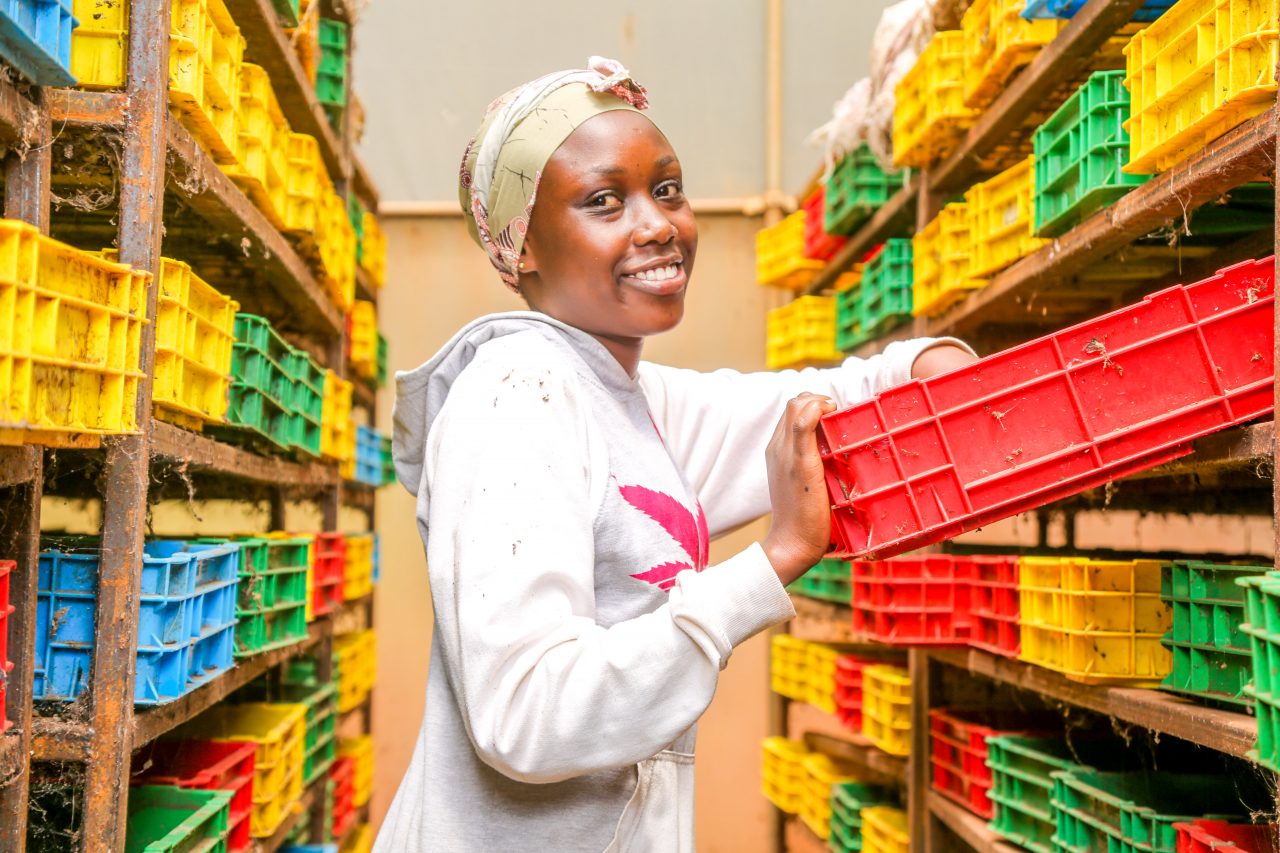Last week, my colleagues and I were in Kabete to cover a most intriguing project – mass production of the Black Soldier Fly lavae by Zihanga Group. We spent a good chunk of the day with the founders of the company, Nicholas Ndekei and Brian Ahenga as they took us through the process, benefits, and challenges of BSF farming whose main product is insect fertilizer.
The black soldier fly is an ecofriendly fly that feeds on organic waste and breaks it down into products like high nutrient fertilizer and alternative high protein feeds for animals like pigs, chicken, and pets. Zihanga is also in the process of creating folia fertilizer for top dressing. There were a few samples and the plan is to make it in bigger quantities for sale.
The process of BSF farming starts with the black soldier fly mating and laying eggs which then become larvae in a few days. It is these larvae that break down waste and in its short lifespan, it will consume practically any waste in huge quantities going upto 50 times its body weight. Other than being of great use in fertilizer production, the fly is quite a mop up and a great environmental solution for organic waste management. As a demonstration towards this, Zihanga is able to absorb 20 tonnes of waste every week and BSF is able to convert this into usable products in its two-week lifespan.
BSF farming comes with a lot of advantages both for climate and for profit. For one, the biggest raw material required is organic waste which people are willing to give away even for free. Secondly, the whole operation requires littles space, and the turnaround time between egg to fly is just 18 days. It is also sustainable because it works in a circular manner where end products of a particular stage feed into the next stage. If the flies are fed to chicken for example, their droppings become waste for the larvae to feed on.
BSF is the future of organic farming, and it feeds in the UNs Sustainable Development Goals on zero hunger as well as climate action. So huge is the demand for the end products and so low is production that as things stand now, all the companies that have ventured into it cannot sustain demand for one client like Unga Group.






Though it is capital intensive, BSF farming is quite a profitable venture once it catches on. It does require good knowledge in the process, something that both Nicholas and Brian possess in addition to passion for agriculture and sustainability.
Zihanga, whose name was coined from Zero Hunger, came to be in 2020 and has grown rapidly under the stewardship of the 25-year-old duo who identified a clear niche in sustainable farming and run with it. Over time, the company has attracted the attention and help of scientists and donors like Rockefeller Foundation, ICIPE and Safaricom which came through for them with a cash donation, business training, project operation, team building and training on use of data for business. This was through the #MyLittleThing competition in which they emerged second runners-up.
In the short time that it has been in existence, Zihanga has taken quite the leaps, and boasts several achievements. One outstanding one is that their business picked and kept going. This is quite a feat and a dream for any startup. Additionally, at just 2 years, the duo has trained over 10 women and youth groups in BSF farming, opening the door for them to venture into the business. Zihanga has also created employment for 6 full time workers from the area. Bless them.

I was able to speak to one of the workers, 19-year-old Tasha Waceke who has been working with them for around 6 months now. Waceke is able to work and support not only for her 2-year-old son and her mum, but also to save some funds as she prepares to join KMTC next year to study nursing.
To the youth out there, she advises against choosing jobs. Take what comes along as long as it is legit and build your life from there. She says this from a point of experience because BSF farming can be viewed as a dirty and smelly job, but she’s determined to work it anyway.
The story of Zihanga is a story of how a combination of clear goals, hard focused work, good sponsors and probably most importantly the right idea at the right time can elevate our youth into greatness. The fact that Nicholas and Brian are sharing their knowledge through training and employment also plays into Safaricom’s brand philosophy ‘Tuinuane’ in which the telco is urging Kenyans to stand up for one another in whatever little way they can.